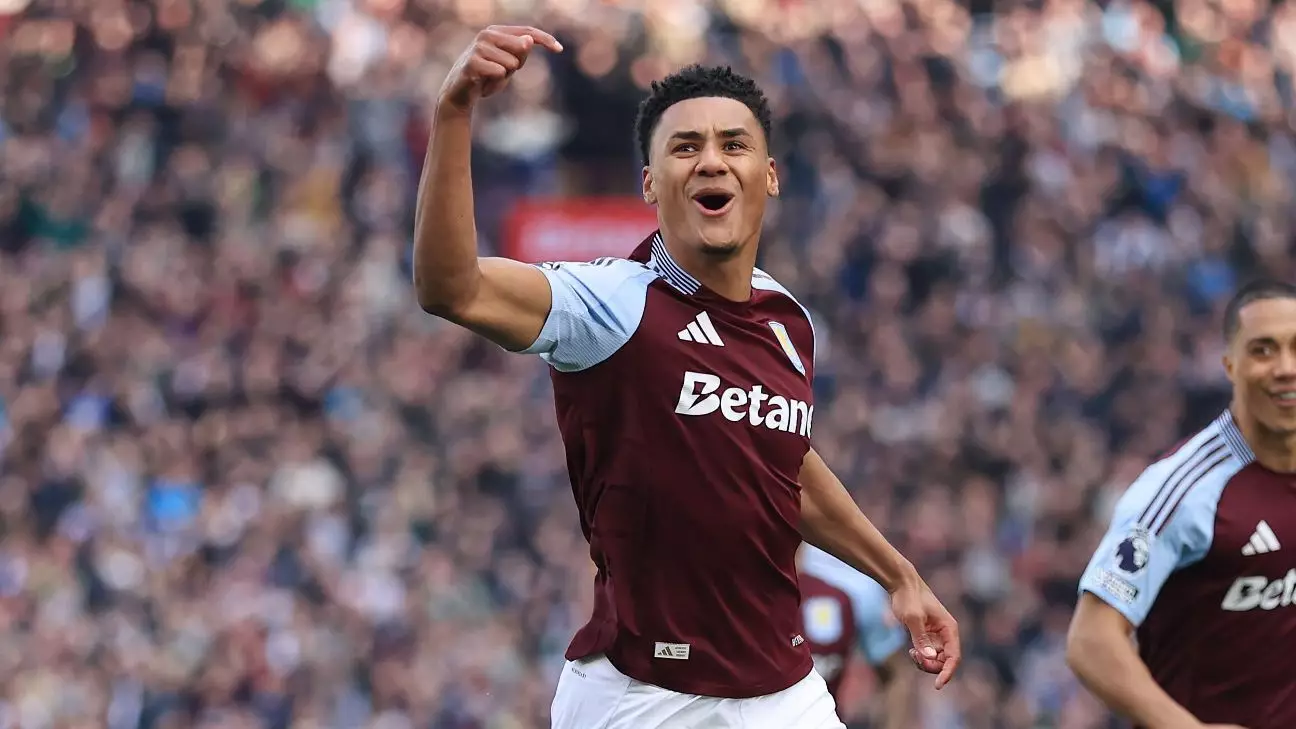The world of football transfers is never static; it’s a whirlwind of negotiations, rumors, and possible shake-ups that can change the landscape of the Premier League overnight. A potential swap deal between Manchester United and Aston Villa that would see Ollie Watkins move to Old Trafford while Marcus Rashford heads in the opposite direction is stirring much debate among fans and pundits alike. While these transactions are often viewed with skepticism due to their complexities, this particular swap may possess the potential to revitalize both clubs.
Watkins, an England international, has made a name for himself with his impressive performances at Aston Villa. His adaptability and prowess in front of goal have attracted attention from top clubs, most notably Manchester United, who are in dire need of a reliable striker. Meanwhile, Rashford, once seen as an irreplaceable asset at United, has experienced a decline in his role due to an influx of talent and tactical changes. Reports suggest that United could leverage Rashford’s market value to secure a deal for Watkins, which brings into question the worth of loyalty in an industry overtaken by cold, hard economics.
Financial Implications of the Champions League
A major factor influencing this potential swap is the financial implications of playing in the Champions League. With Manchester United on the cusp of qualifying for the prestigious tournament, a successful run could pump enough funds into the club’s coffers to allow them to pursue high-caliber targets like Watkins more aggressively. The perception that Champions League football carries additional weight in negotiations cannot be understated; it not only boosts the club’s revenue but also increases its attractiveness to elite players.
However, this raises an essential question: can Marcus Rashford be fairly valued as part of this equation? Once rated at around £40 million, the star forward’s fluctuating form and competition for positions make him a gamble in the current market. Still, for Aston Villa, acquiring a player of Rashford’s caliber could be a fantastic boost if they can navigate his sporadic brilliance effectively.
Aston Villa’s Aspirations: Eberechi Eze as a Target
While the potential swap deal is captivating, Aston Villa’s interest in Eberechi Eze from Crystal Palace adds another layer of intrigue to their strategic ambitions. Amid Rashford’s wavering commitment, acquiring Eze could offer Villa a dynamic forward option and symbolize their intent to move forward in the league hierarchy. The competition for Eze is palpable, drawing attention from other clubs as well, indicating that Villa must act decisively if they want to secure his services.
Eze, valued at around £50 million, is not just another name on the shopping list; his creativity and ability to stretch defenses can reshape Villa’s tactical framework. However, with both Manchester United and Aston Villa sniffing around for upgrades to their squads, a bidding war could emerge, complicating negotiations for both parties involved. This dynamic brings to light the cutthroat nature of the transfer market where calculated risks often lead to significant rewards or devastating losses.
The Broader Picture of Premier League Transfers
The idea of a swap deal is part of a wider trend seen across the footballing world. Clubs are increasingly exploring this option to alleviate financial pressures while adjusting their rosters to fit tactical needs. Just like Manchester United is considering bringing in Watkins while offloading Rashford, other clubs are salivating over potential strategic deals that could minimize financial outlays in a chaotic economic environment.
Consider the case of Manchester City, who are eyeing FC Porto’s Diogo Costa as a backup goalkeeper after injuries to Ederson. Meanwhile, Liverpool is not resting on its laurels, even with Mohamed Salah’s new deal; they’re actively pursuing Brentford’s Bryan Mbeumo to strengthen their attacking frontline. The common thread through these cases is the realization that every significant signing has repercussions that can either uplift a club or lead to staggering wastefulness.
The Future of Transfer Business in Football
As the January transfer window approaches, expectations run high for tactical maneuvers, blockbuster deals, and nail-biting negotiations. The complex web of relationships between clubs, players, and agents continues to evolve, and those who adapt to the demands of modern football stand to gain the most.
Swap deals, particularly in the case of Rashford and Watkins, speak to a broader narrative in football: the balance between immediate needs and long-term strategies. It is an exhilarating time to be a football fan, as every rumor suggests potential seismic shifts that could redefine rivalries, ambitions, and even careers. As the transfer window rolls on, we brace ourselves for what is undoubtedly going to be a thrilling saga of football’s most curious and strategic matchmaking processes.

Leave a Reply